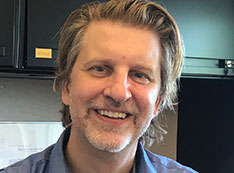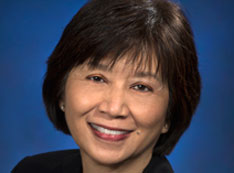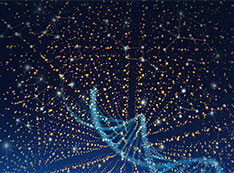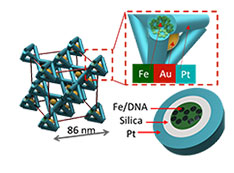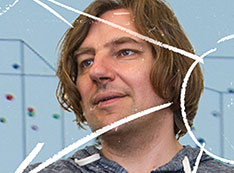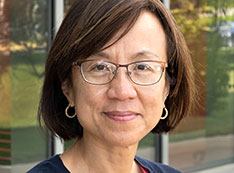A Message from Chuck
insights from the CFN Director
May 23, 2022
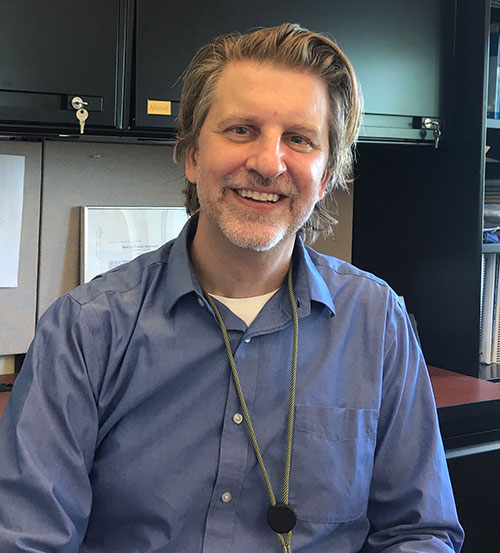
Chuck Black
I was recently visiting my parents at my childhood home in Indiana and spent some time working with them in their yard, clearing away sticks and leaves left from the winter. We remarked on all the flowers that had already sprung up and into bloom. Springtime is so full of promise, as the world emerges from winter and into growth and renewal.
In this our third spring of COVID-19, we may be having some difficulty even remembering what life was like prior to March of 2020. Can you recall a world before masks, distancing, and vaccines? A day without headlines informing that hundreds, or thousands, more people have died? A life where we didn't think twice about going to a restaurant, movie, or party—because we weren’t worried about getting sick? No doubt, these past two-plus years have changed us.
Let me tell you about one way it's changed me, and maybe you, too.
In this season of renewal, I'm feeling more urgency than I've ever felt before. I write often about the fantastic opportunity that CFN affords users and staff to collaborate on work that truly matters. However, to me, these days it seems important not only that we do work that matters, but that we do it urgently, and with purpose.
Because everything can change quickly, can't it? That's what we've learned. Everything.
It can be difficult to read today's news without feeling that our world is awash in impossible problems. Global disease, societal unrest, scary and unsettling war, intolerant extremism, hateful violence, and a changing climate are only some of the deeply upsetting issues that seem to be beyond any solutions.
It's tempting to think about these topics and decide, “Those are too big for me. Someone else must solve those problems, because I can't.”
I'm asking all of us—CFN users and staff alike—to resist that temptation. Resist leaving the work of finding solutions to the most important problems to other people. Because there are so many important challenges for which science must provide the answer. Scientists like us must solve those problems. We are them.
In a colloquium given in the 1980s, the acclaimed mathematician Richard Hamming spoke to the urgency I've been feeling and about the importance of doing work that matters. Hamming challenged his audience with a profound question, remarking that: "…as far as I know, each of you has only one life to live. Why shouldn't you do significant things in this one life?"
I was reminded of Hamming's talk, entitled “You and Your Research,” the other day when I was welcoming CFN staff and users to our first in-person Wednesday coffee break since March of 2020. At that event, we laughed about how good it felt to be all together, and also how the past two years have felt like a dream.
I've written about "You and Your Research" before. It's a terrific, thought-provoking presentation, and I encourage us all to read or watch it again.
In "You and Your Research," Hamming recalls the early parts of his career, working at Los Alamos during World War II on the Manhattan Project. He recounts that "…(he) was brought in to run the computing machines…. I saw Feynman up close. I saw Fermi and Teller. I saw Oppenheimer. I saw Hans Bethe. I saw quite a few very capable people. I saw that although physically I was the same (as them), they were different. I wanted to know why. I became very interested in the difference between those who do and those who might have done."
Understanding what distinguishes the people who make lasting contributions to the world became a lifelong interest for Hamming. In "You and Your Research," he recounts his observations and the lessons he learned over the course of his career. Hamming's stories are fascinating to read. He developed the habit of asking colleagues uncomfortable, provocative questions—often over lunch. Questions like:
"If you don't think (your research) is going to lead to something important, then why are you working on it?''
To Hamming, it was perfectly clear that "…if you don't work on an important problem, it's unlikely you'll do important work. But the average scientist does routine, safe work almost all the time… and so they don't produce much. It's that simple."
In summarizing his observations, Hamming concludes that “…some of the reasons why so many people who have greatness within their grasp do not succeed are: They don't work on important problems; They don't become emotionally involved;…and they keep giving themselves alibis for why they don't.”
To me, these conclusions are worth us all thinking about. Let’s take a few minutes to ask ourselves whether our research will lead to something truly important, or whether we're being too safe and routine in our thinking and ideas.
Are we doing significant things with our one life?
And if you’re interested, I encourage everyone to send an email to workthatmatters@bnl.gov. You’ll receive Hamming’s question in response and an opportunity to give your thoughts on how your research truly matters. We'll gather our stories and share them, to more clearly see how CFN users and staff are making a difference.
Thinking about the opportunity we have to do research that matters, and the urgency to take action, makes me think of the 17th century poem by Anglican cleric Robert Herrick, which reminds us that the future is not promised to any of us:
"Gather ye Rose-buds while ye may,
Old Time is still a-flying:
And this same flower that smiles today,
Tomorrow will be dying.”
The CFN is such a special place for nanoscience research. With our foundational culture of collaboration, built around a community of talented users and staff and supported by the portfolio of world-class CFN instrumentation, we can truly make a difference through the research we carry out—but only if we are brave enough to dare it.
Let's make sure our ideas are bold, and match this key moment in time. Let's “Gather ye rosebuds while ye may.” We are all counting on us.
— Dr. Charles Black
Director, Center for Functional Nanomaterials
Brookhaven National Laboratory
Building 735
Upton, NY 11973
(631) 344 4397
2022-20609 | INT/EXT | Newsroom




